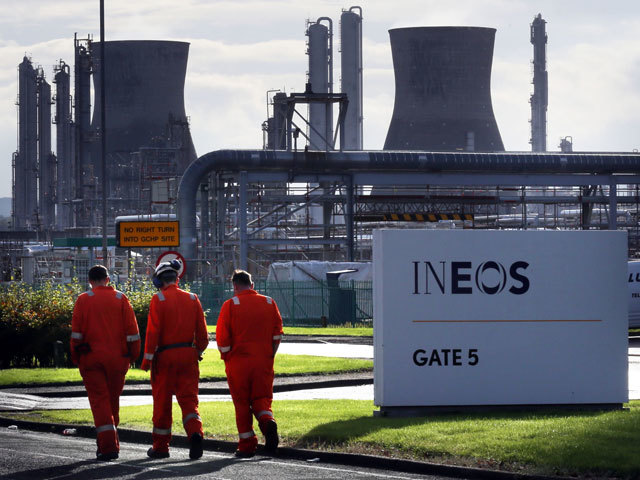
Crude oil fell below $50 a barrel to its lowest level since March 2005 yesterday amid fears of a global downturn on demand.
Brent crude eventually sank to $48.08 in London after a fresh round of dire economic news.
Light, sweet crude in New York settled down $4 a barrel at $49.62, almost $100 below the peak of $147 seen in mid-July.
Sharp falls on global stock markets this week have reflected worsening fears over the economic outlook.
A sudden plunge in US inflation figures on Wednesday raised concerns over a possible deflation threat, while yesterday unemployment in the world’s largest economy jumped to a 16-year high.
This week several UK retailers announced they were cutting the price of petrol at the pump as retailers came under pressure to reflect the falls in the price of crude.
The news came as the AA revealed the price of petrol had fallen by a record amount over the past month.
Average UK prices dropped from 106.4p a litre in mid-October to 94.86p in mid-November, compared with 119.7p in mid-July.
It is believed production cuts may be announced next month by the oil countries of Opec which may stop prices falling further.
Mike Tholen, economics director with Oil and Gas UK, said: “The North Sea oil and gas industry is increasingly concerned at the potential impact on this industry of the continued fall in oil price. There is the risk of new investment being delayed or cancelled.
“The North Sea is a mature high-cost basin. The UK oil and gas industry must compete hard to attract the funds it needs to maintain the pace of exploration and development required to sustain activity in the long term.
“The recent rapid drop in oil prices will make that task all the more challenging and underlines the importance of the UK Government’s help if the industry is to maximise recovery of the country’s remaining oil and gas reserves.”
Mike Salter, president of Aberdeen and Grampian Chamber of Commerce, said: “Oil price fundamentals in terms of medium-term supply and demand are robust enough for the price to stay in the range of $80 to $100.
“Some recent views indicate the major oil companies will not reduce their programmes significantly.
“I think the entire industry is hoping that the oil price will go back to around $80 in the short term and that the global financial crisis sorts itself out pretty quickly.”
Professor Alex Kemp, of Aberdeen University, said: “We published a paper recently looking at the effects of oil at $80, $60 and $40. At $80 we should see high activity over the longer term, at $60 there would be a distinct dip and some projects would not make it, and at $40 activity would be substantially affected and a lot of projects would not make it.
“It would be a matter of concern if the price was sustained below $50, but I believe that over the next few years if the world comes out of recession the price could rise to $100 or more.”
Jake Molloy, regional organiser of the OILC/RMT union, said at low oil prices smaller projects would be the first to suffer and smaller independents would find it difficult to get finance.
He said: “This is bad news all round for offshore workers and for the service and subsea sectors in particular. But I am optimistic that the oil price won’t go much lower.”
Recommended for you
